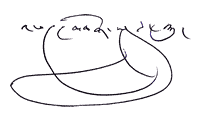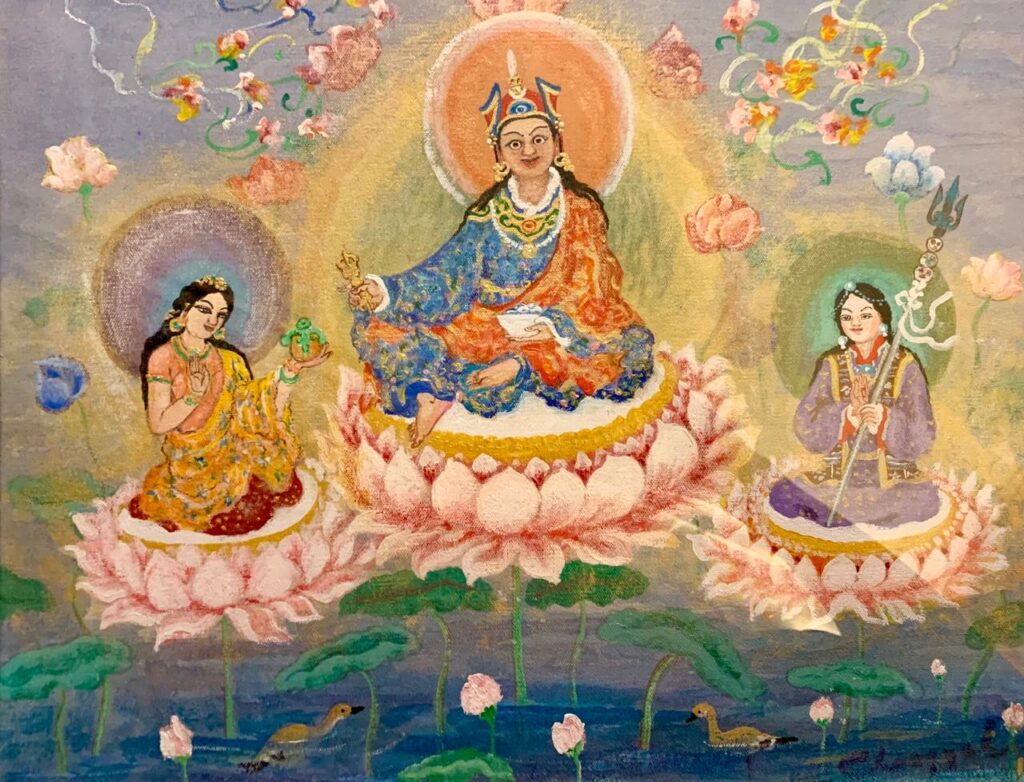Dear friends near and far,
As always, I hope this message finds you well, healthy and happy. On this Guru Rinpoche day, I would like to talk about the two accumulations, how they are defined, how they differ from each other, and how to gather them.
As you all know, there are two accumulations, of merit and of wisdom. Whatever activity you engage in—whether it is practicing virtue or purifying the obscurations, whether it is by means of recitation, meditation, the six perfections, or anything else—if you do so with concepts and clinging, this virtue will go towards the accumulation of merit. On the other hand, if you engage in any of these activities without any concept or clinging whatsoever, it will go towards the accumulation of wisdom.
In order to fulfill your wishes in these six realms of samsara, you need to gather the accumulation of merit. However, if you don’t have the correct motivation, your virtuous action will only be a semblance of the accumulation of merit. If you are motivated by renunciation, it will be merit that leads to liberation. If you have genuine bodhicitta, it will be merit that leads to awakening. Finally, for your virtuous actions to become the accumulation of wisdom, they need to be devoid of all concepts and all clinging.
On this topic, the Mahayana Sutra of Sublime Wisdom records the following exchange between the bodhisattva Jnanaketu and the Buddha:
The bodhisattva Jnanaketu asked: ‘What is the accumulation of merit?’
The Buddha answered: ‘It consists in generosity and the other virtuous qualities, with conceptualization.’
Jnanaketu: ‘What is the accumulation of wisdom?’
Buddha: ‘It consists in wisdom and so on, without any conceptualization.’
Jnanaketu: ‘How does one gather these?’
Buddha: ‘The accumulation of merit is a samsaric accumulation. It is equivalent to the water gathered in a bull’s hoofprint. Why is that? It is quickly lost, exhausted, or diminished. Having experienced the happiness of gods and humans, one must circle back to the lower realms.
‘The accumulation of wisdom, on the other hand, is called the nirvanic accumulation. It is equivalent to water in the ocean. It cannot be lost, is inexhaustible, unfailing, and will lead you to nirvana.
‘Jnanaketu, gather only the accumulation of wisdom.’”
Here, among the two accumulations, the accumulation of wisdom is shown to be superior, because it is in accord with the true nature of things, the ultimate truth, and the absence of clinging.
However, we cannot gather the accumulation of wisdom right away, precisely because we have not realized the ultimate which is free from all clinging. Therefore, we first need to gather the accumulation of merit by whatever means we can, through study, reflection, and meditation. With these three methods, we engage in all the six paramitas, up to the perfection of wisdom which also consists in the wisdoms of study, reflection, and meditation.
In the beginning, we cannot realize or practice from the ultimate perspective, because we are not free of clinging. Therefore, we have to start where we are and as best we can, with the sincere wish to realize the ultimate. Making aspirations to gain realization, we progressively suffuse our practice with the motivations of renunciation, bodhicitta, and finally a mindset that is free from all clinging. Thus, with a pure mindset, we progress from the accumulation of merit that leads to liberation, to the merit that leads to awakening, and finally to the accumulation of wisdom.
Furthermore, as it is said:
The wakefulness that is innate to the ultimate truth is the result of gathering the accumulations, purifying the obscurations, and receiving the blessings of the lama. Aside from these, one should know it is foolish to rely on any other method.”
The Hevajra also says:
It cannot be taught by anyone, but is innate. It can never be found, but should be known to reveal itself through relying on the guru’s time and instructions, and gathering merit.”
Thus, with the foundation of your own accumulation of merit, if you rely on the guru, you will reach realization.
As Saraha said:
When the words of the guru remain in your heart, it is like seeing a treasure in the palm of your hands.”
These citations point to the way of Essence Mahamudra—among the three of Sutra Mahamudra, Tantra Mahamudra, and Essence Mahamudra—which relies chiefly on the blessings of the guru. Thus, to traverse this swift path, in addition to gathering the accumulations and purifying the obscurations, one also must rely on the guru.
In brief, in order to gather the accumulation of wisdom, you need to realize the ultimate; in need to realize the ultimate, you have to gather the accumulation of merit; in order to do any of this, you need to rely on a genuine guru who possesses the right instructions. Therefore, on today’s Guru Rinpoche day, please pray for Guru Rinpoche to bless you, care for you, and never forget you. And, most importantly, bring to mind Guru Rinpoche’s kindness, that his blessings may enter your hearts.
With all my love and prayers,
Sarva Mangalam

Phakchok Rinpoche
Translations
简体中文
繁體中文
Français
Deutsch
Ελληνικά
Bahasa Indonesia
नेपाली
Português
Русский
Español
Svenska
ภาษาไทย
Українська
Tiếng Việt






Responses